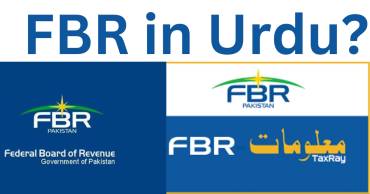The Federal Board of Revenue (FBR), known in Urdu as وفاقی بورڈ محصولات, plays a crucial role in the fiscal landscape of Pakistan. Established to oversee tax collection and enforcement, the FBR is integral to the country’s economic framework.
In this article, we will explore about the functions, history, significance, and challenges faced by the FBR, providing a comprehensive understanding of its operations and impact on Pakistani society.
What is the FBR?
The FBR is the primary agency responsible for tax collection in Pakistan. It was formed on July 1, 1950, as a successor to the Central Board of Revenue (CBR).
The agency operates under the Ministry of Finance and is tasked with enforcing tax laws, collecting revenue, and ensuring compliance among taxpayers. The FBR’s headquarters is located in Islamabad, and it employs approximately 21,500 individuals dedicated to various aspects of tax administration.
Historical Background
Formation and Evolution
The origins of the FBR trace back to April 1, 1924, when it was established as the Central Board of Revenue through the enactment of the Central Board of Revenue Act. Over the years, it has undergone several transformations:
- 1944: The CBR was placed under a newly formed Revenue Division within the Ministry of Finance.
- 1960: Following administrative reorganizations, it became a division under the Ministry of Finance.
- 2007: The CBR was renamed to Federal Board of Revenue following the passage of the FBR Act.
These changes reflect an ongoing effort to streamline operations and enhance efficiency in tax collection.
Key Functions of the FBR
The FBR’s responsibilities are multifaceted and include:
1. Tax Collection
The primary function of the FBR is to collect various forms of taxes, including income tax, sales tax, and customs duties. This revenue is essential for funding government operations and public services.
2. Enforcement and Compliance
The FBR employs inspectors who monitor compliance with tax laws. They investigate tax evasion and suspicious financial activities. The agency uses advanced technology to track transactions and identify potential tax evaders.
3. Policy Formulation
The Chairman of the FBR plays a pivotal role in formulating fiscal policies that align with national economic goals. This includes setting tax rates and developing regulations that govern tax administration.
Importance of the FBR
The significance of the FBR extends beyond mere revenue collection:
1. Economic Stability
By ensuring compliance with tax laws, the FBR contributes to economic stability. A robust tax system helps fund essential services such as education, healthcare, and infrastructure development.
2. Fairness in Taxation
The FBR aims to create a fair taxation system where all individuals and businesses contribute their fair share. Initiatives such as tax amnesty schemes are introduced periodically to encourage compliance among previously non-compliant taxpayers.
3. Development Initiatives
The FBR also plays a role in supporting government initiatives aimed at economic development. For instance, it has introduced incentive packages for specific sectors like construction to stimulate growth.
Challenges Faced by the FBR
Despite its critical role, the FBR faces numerous challenges:
1. Tax Evasion
One of the most significant issues is widespread tax evasion. Many individuals and businesses do not comply with tax regulations, leading to substantial revenue losses for the government.
2. Bureaucratic Inefficiencies
Like many government agencies, the FBR struggles with bureaucratic inefficiencies that can hinder its operations. Streamlining processes and improving service delivery remains an ongoing challenge.
3. Public Perception
The public perception of taxation often leans towards negativity due to historical issues related to corruption and inefficiency within government institutions. Building trust among taxpayers is essential for improving compliance rates.
Recent Developments in Tax Administration
In recent years, the FBR has made strides towards modernization:
1. Digital Transformation
The introduction of online portals for filing income tax returns has simplified processes for taxpayers. The launch of Urdu versions of income tax returns aims to enhance accessibility for non-English speakers.
2. Awareness Campaigns
To combat misinformation about taxation and improve compliance rates, the FBR has initiated awareness campaigns aimed at educating taxpayers about their rights and responsibilities.
Conclusion
The Federal Board of Revenue is a cornerstone institution within Pakistan’s economic framework. Its role in collecting taxes and enforcing compliance is vital for sustainable development and economic stability. While it faces challenges such as tax evasion and bureaucratic inefficiencies, recent initiatives aimed at modernization reflect a commitment to improving service delivery and taxpayer engagement. As Pakistan continues to evolve economically, the effectiveness of the FBR will play a crucial role in shaping its fiscal future.Through understanding its functions and challenges, citizens can better appreciate how their contributions through taxes support national development efforts.















One thought on “What is FBR in Urdu: Understanding the Federal Board of Revenue (FBR) in Pakistan”